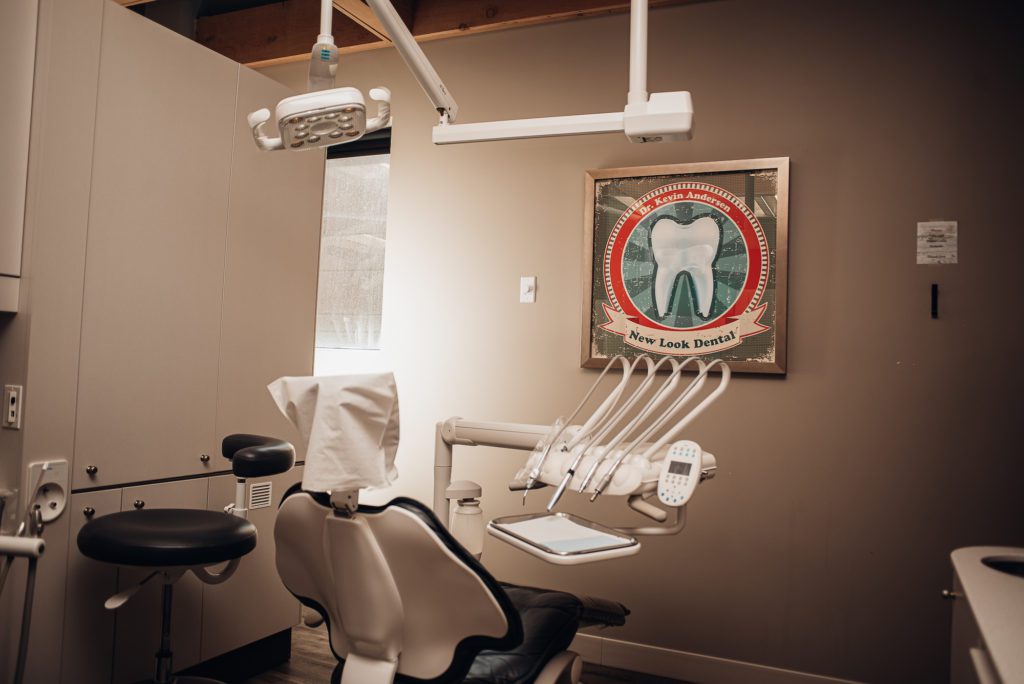As a dentist in West Kelowna, one of the most common concerns our patients have is how to get rid of plaque. Plaque is a sticky film of bacteria that forms on teeth and can lead to tooth decay and gum disease if not removed.
Getting rid of plaque is crucial for maintaining good oral health! If plaque is left on the teeth, it can harden into tartar, which is much harder to remove and can only be removed by a dental professional. Tartar buildup can cause gum disease, which can lead to tooth loss and even impact your overall health. In addition, the bacteria in plaque can release acids that eat away at the tooth enamel, leading to cavities and tooth decay. By regularly removing plaque through good oral hygiene habits and dental cleanings, you can help prevent these issues and keep your teeth and gums healthy for years to come.
Dentist tips to get rid of plaque
1. Brush your teeth twice a day
Brushing your teeth twice a day is one of the most effective ways to get rid of plaque. Use a soft-bristled toothbrush and fluoride toothpaste, and make sure to brush all surfaces of your teeth, including the fronts, backs, and chewing surfaces. Brushing your tongue can also help remove bacteria that can cause bad breath.
2. Floss daily
Flossing is just as important as brushing when it comes to removing plaque. It helps remove plaque and food particles from between your teeth and along the gumline. If you have trouble with traditional floss, try using a floss pick or water flosser.
3. Use an antiseptic mouthwash
An antiseptic mouthwash can help kill the bacteria that cause plaque. Swish it around your mouth for 30 seconds after brushing and flossing. Make sure to choose a mouthwash that has the ADA (American Dental Association) seal of approval.
4. Limit sugary and acidic foods and drinks
Sugary and acidic foods and drinks can contribute to the formation of plaque. Limit your intake of sugary snacks and drinks, and opt for water or milk instead. If you do indulge in a sugary or acidic treat, make sure to rinse your mouth with water afterward.
5. Get regular dental cleanings
Even with good brushing and flossing habits, some plaque can still build up over time. That’s why it’s important to get regular teeth cleanings, also known as a dental hygiene appointment.
Book your next dental hygiene appointment online now

During your dental hygiene appointment, one of our friendly dental hygienists will clean your teeth and gums to remove any plaque, tartar, and stains that may have accumulated since your last appointment. They will use special tools to remove plaque and tartar from your teeth and gumline, and may also polish your teeth to remove any surface stains.
In addition to cleaning your teeth, your dental hygienist will also evaluate your overall oral health and provide personalized advice on how to improve your oral hygiene habits. They may demonstrate proper brushing and flossing techniques, and recommend specific products like toothpaste or mouthwash to help keep your teeth and gums healthy.
A dental hygiene appointment typically takes about 30-60 minutes, depending on the amount of cleaning needed and the overall health of your teeth and gums. Regular dental hygiene appointments are important for preventing dental problems and maintaining good oral health. Most dental professionals recommend getting a teeth cleaning every six months, but your dentist or hygienist may recommend more frequent cleanings depending on your individual needs.
More hacks to help keep your teeth free of plaque
- Use an electric toothbrush: Electric toothbrushes have been shown to be more effective than manual toothbrushes at removing plaque. Look for one with a rotating or oscillating head for the best results.
- Use a tongue scraper: Bacteria can also accumulate on your tongue, contributing to the formation of plaque. Use a tongue scraper to gently remove bacteria and improve your overall oral hygiene.
- Chew sugar-free gum: Chewing sugar-free gum after meals can help increase saliva flow and neutralize the acids produced by bacteria in plaque.
- Eat crunchy fruits and vegetables: Crunchy fruits and vegetables like apples and carrots can help remove plaque from teeth by acting as a natural abrasive.
- Try oil pulling: Oil pulling is an ancient Ayurvedic practice that involves swishing oil (usually coconut oil) in your mouth for 10-20 minutes to remove toxins and bacteria. While the evidence supporting oil pulling’s effectiveness at removing plaque is limited, some people swear by it as a natural remedy for oral health.
Getting rid of plaque requires a combination of good oral hygiene habits and regular dental checkups. By brushing and flossing daily, using an antiseptic mouthwash, limiting sugary and acidic foods and drinks, and getting regular dental cleanings, you can help keep your teeth and gums healthy and free of plaque.
Next Month is Oral Health Month!
As an Okanagan dentist, we are excited to celebrate Oral Health Month this April. This is a time to raise awareness about the importance of good oral health and the impact it can have on our overall well-being. Good oral hygiene habits are essential for maintaining healthy teeth and gums and can help prevent a range of dental problems such as cavities, gum disease, and tooth loss.
During Oral Health Month, it’s important to remember the basics of good oral hygiene. Brush your teeth twice a day with toothpaste and don’t forget to floss! Limit your intake of sugary and acidic foods and drinks, and make sure to get regular dental checkups and cleanings. These simple habits can go a long way in helping you maintain good oral health and prevent dental problems down the road.
Oral Health Month is also a great opportunity to talk to your dental professional about any concerns or questions you may have about your oral health. Your dentist or dental hygienist can provide personalized advice and treatment to help you maintain healthy teeth and gums. This April, let’s all commit to taking care of our oral health and celebrating the importance of a healthy smile!
